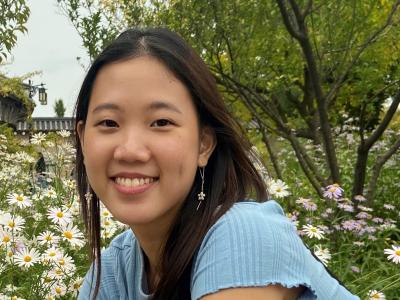
Glued to a smartphone; transfixed on a Telegram chat; angsting over Instagram filters – the stereotypical millennial, we are told, is driven by a sense of entitlement for instant, digital gratification and wouldn’t consider reading anything over 140 characters.
But surprisingly, a new research shows that millennials in the US are reading and engaging more with libraries, and more than older generations. How do millennials in Singapore and Asia compare? We asked Kirpal Singh, renowned author, poet, literary and cultural critic, and university lecturer in English language and literature, to share his insight.

Research in the US shows millennials over there are reading more than any other generation. How can this be explained?
Kirpal: That’s thanks to technology. Devices from smart phones to iPads provide easy access to books, articles and news. But much depends on what we define as “reading”. In some of the older cultures reading is seen as enhancing our understanding of the world and of ourselves. Thus reading which only serves to help us get a better job or make more money or make more friends isn’t considered “reading”.
How does the US research compare with the reading habits of Asian millennials?
Kirpal: I think what this shows is that our Asian millennials are still very much in the domain of instrumental reading – the kind of reading which might make them better prepared for the workplace, enable them to make friends quickly or build businesses, for example. Asian millennials don’t read for their own sake, whereas the Americans frequently do.
Could you elaborate on the similarities and differences?
Kirpal: DIY books and reading materials pertaining to, say, food and travel are consumed by Asians relatively more than the Americans. But when it comes to reading, say, fiction, philosophy and poetry, the Americans are the ones ahead.
How is the way young people read today different to the last generation? Beyond devices, is their motivation to read different?
Kirpal: I feel the young today read as a means to an end. This suggests that once that end is realised there is no more need to remember what has been read. So there are some among our young who tell me they read Shakespeare – but they don’t read the Bard’s plays because of the love of language or for the values the plays explore. They read Shakespeare to see how Shakespeare can be used or applied, say, to leadership and management, for example. Intrinsically there’s nothing wrong with this. It’s just that this type of reading is limited both in scope and depth because it’s for a specific goal, a target.
After years of stories in the media telling us that books would soon be replaced by Kindles and tablets, they are being celebrated again. How do you explain this?
Kirpal: My good friend, the writer Brian Aldiss, said a very long time ago – and here in Singapore – that the future of the book is certain and definite and in no way threatened by new technology. We all know that holding a book in our hands is distinctively more intimate than reading a book through other means! I have seen people tear with a book in their hands. Seldom have I seen this happen when the same book is read via Kindle.
As an author yourself do you feel compelled to encourage your students to read more?
Kirpal: Of course! But often students don’t like to be told this because they think they know. There’s a deeper reason for encouraging reading: to enable us to use language in new, creative ways so that our imaginations are kept alive. I’m sad that here in Singapore, even in our universities, students tend to take good reading as a waste of time. Only when they grow older do they get wise(r).
How can universities encourage more reading?
Kirpal: A long time ago Chicago started the famous ONE CITY ONE BOOK. We followed with READ Singapore. In my life I’ve been very blessed to have had family, community and especially my teachers from primary 1 to PhD tell me I ought to read. We have to do much, much more to promote reading in universities so it becomes a pleasurable habit. But it takes hard work, persistence and the building of an eco-system that supports this.
Looking forward, how do you think reading habits will change in the future?
Kirpal: I am convinced that we go through ups and downs. As far as reading is concerned I think currently we are on a “down”. But the “up” is going to come soon. One of the most revered teachers I have had is the late Professor Maurice Baker who beautifully wrote in his autobiography, “The Accidental Diplomat”, when speaking of romance, that often in his experience, when everything else failed – poetry succeeded. But it will take time for us Singaporeans.


